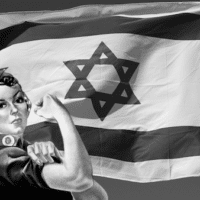-
Some of my best enemies are feminists: on Zionist feminism
Historically speaking, Zionist feminism shares key characteristics of colonial feminisms of the nineteenth century.
-
The making of the Evangelical anti-abortion movement
In 1971, the Southern Baptist Convention, the largest Protestant denomination in the United States, adopted a resolution calling on fellow Southern Baptists to work to make abortion legal under certain conditions, namely, ‘rape, incest, clear evidence of severe fetal deformity, and carefully ascertained evidence of the likelihood of damage to the emotional, mental, and physical health of the mother’.
-
Communism, the Manifesto, and Hate
We have no reason to succumb to the complex comfort of despair, a lugubriousness by which failure is foreordained. But to stress the repeated failures of the Left is a necessary corrective to its history of boosterism and bullshit, and to stress how appalling these days are, even if we can also find in them hope.
-
Marxism, religion and femonationalism
Our very modes of thinking about the social are fragmented, or intersectional…[which is] why intersectionality has become such an important paradigm for feminism. It conceives of different experiences of oppression and exploitation as coming from different and separate systems and tries to recombine the fragments of oppression without denying their singularity. Social Reproduction Feminism seeks to include and to go beyond intersectionality by saying both that we need to understand capitalism as the very specific socio-economic system in which those forms of oppression are generated and nourished, and that there are not ‘separate’ systems of oppression or exploitation under capitalism that can be understood in isolation one from the other.




